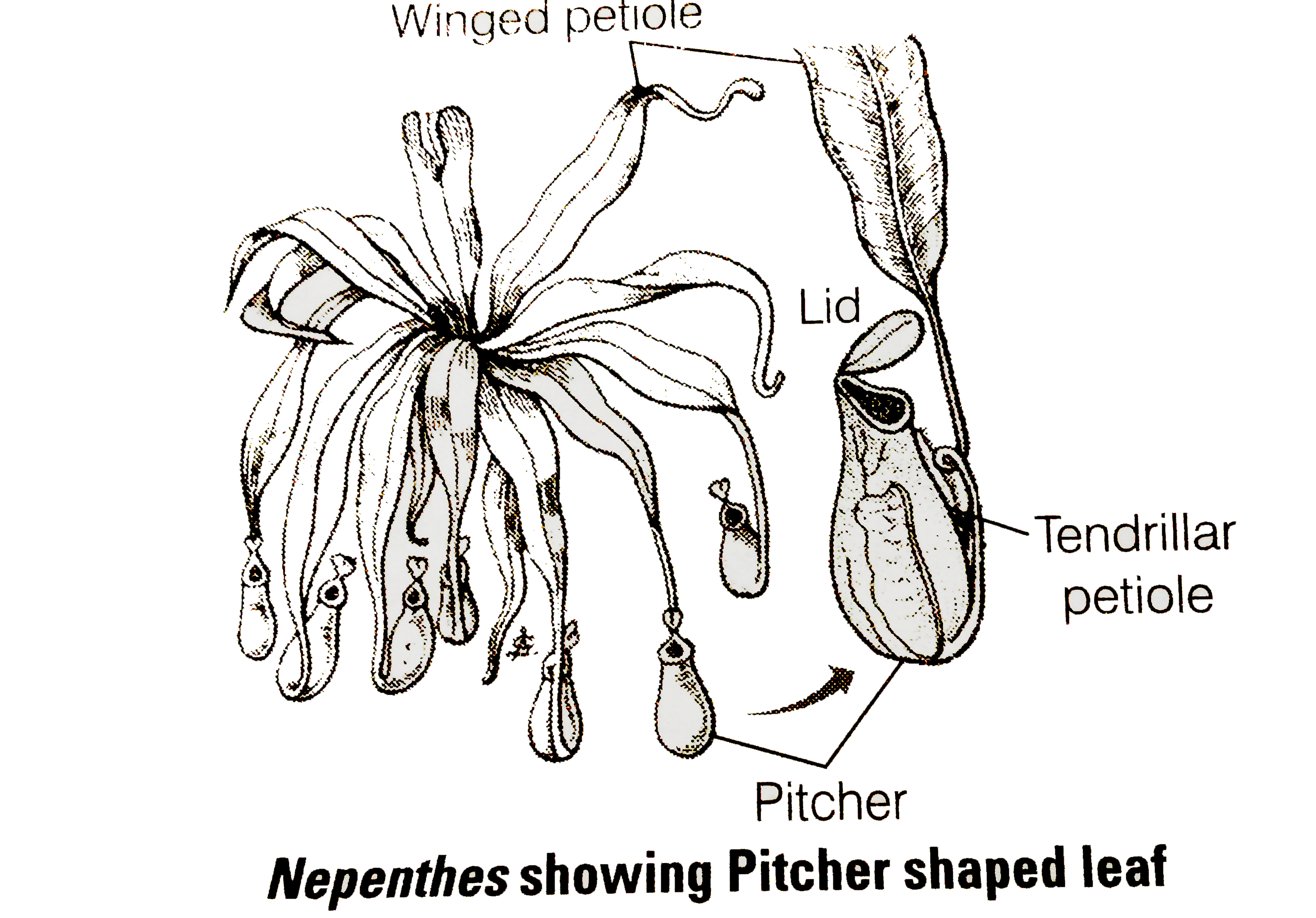Plants exhibit subepidermal evaporation of water during
Photosynthesis
Guttation
Transpiration
Respiration
The correct Answer is:C
Step-by-Step Solution:
1. Understanding the Question: The question asks about the process during which plants exhibit subepidermal evaporation of water. This means we need to identify a process related to water loss in plants that occurs beneath the outer layer of the plant's skin (the epidermis).
2. Identifying the Options:
- a. Photosynthesis: This is the process by which plants convert light energy into chemical energy, using water and carbon dioxide to produce glucose and oxygen.
- b. Guttation: This is the process where water is expelled from the leaves in the form of droplets, usually occurring at night due to root pressure.
- c. Transpiration: This is the process of water vapor loss from the aerial parts of the plant, primarily through small openings called stomata.
- d. Respiration: This is the metabolic process where plants convert glucose and oxygen into energy, releasing carbon dioxide and water as byproducts.
3. Analyzing Each Option:
- Photosynthesis does not involve the evaporation of water; instead, it uses water.
- Guttation involves the exudation of water droplets from the leaves, which is not evaporation.
- Transpiration involves the loss of water vapor from the plant, primarily through stomata, which can be considered subepidermal since it occurs beneath the epidermis.
- Respiration is a metabolic process and does not specifically relate to water evaporation.
4. Conclusion: Based on the analysis, the process that involves subepidermal evaporation of water is Transpiration. Therefore, the correct answer is option C.
Final Answer: C. Transpiration
---
- a. Photosynthesis: This is the process by which plants convert light energy into chemical energy, using water and carbon dioxide to produce glucose and oxygen.
- b. Guttation: This is the process where water is expelled from the leaves in the form of droplets, usually occurring at night due to root pressure.
- c. Transpiration: This is the process of water vapor loss from the aerial parts of the plant, primarily through small openings called stomata.
- d. Respiration: This is the metabolic process where plants convert glucose and oxygen into energy, releasing carbon dioxide and water as byproducts.
- Photosynthesis does not involve the evaporation of water; instead, it uses water.
- Guttation involves the exudation of water droplets from the leaves, which is not evaporation.
- Transpiration involves the loss of water vapor from the plant, primarily through stomata, which can be considered subepidermal since it occurs beneath the epidermis.
- Respiration is a metabolic process and does not specifically relate to water evaporation.
Topper's Solved these Questions
- TRANSPORT IN PLANTSBOOK - DINESH PUBLICATION ENGLISHCHAPTER - TRANSPORT IN PLANTSEXERCISE - REVISION QUESTIONS FROM COMPETITIVE EXAMS
425 Videos
- TRANSPORT IN PLANTSBOOK - DINESH PUBLICATION ENGLISHCHAPTER - TRANSPORT IN PLANTSEXERCISE - CHECK YOUR GRASP
40 Videos
- THE LIVING WORLDBOOK - DINESH PUBLICATION ENGLISHCHAPTER - THE LIVING WORLDEXERCISE - Check your grasp
12 Videos
- VERTEBRATA-AGNATHA AND PISCESBOOK - DINESH PUBLICATION ENGLISHCHAPTER - VERTEBRATA-AGNATHA AND PISCESEXERCISE - Check Your Grasp
12 Videos
Similar Questions
Knowledge Check
During active absorption of water
Aenergy is not usedBtranspiration pull provides force for absorption of waterCroot respiration provides energyDphotosynthesis provides energyThe leaves of certain plants exhibit droplets of water along their margins in the warm humid conditions.
ABleedingBGuttationCTranspirationDEvaporation
A reversible isothermal evaporation of 90 g of water is carried out at 100∘C. Heat of evaporation of water is 9.72 kcal mol−1. Assuming water vapour to behave like an ideal gas, what is the change in internal energy of the system ?
View SolutionDuring the evaporation of liquid
View SolutionDuring the evaporation of liquid
View SolutionCarnivorous plants exhibit nutritional adaptation . Citting an example explain this fact.

View SolutionWhich will evaporation faster, water or alcohol ?
View SolutionIdentify the type of reaction (Exothermic/Endothermic)
Respiration
Evaporation of water
View Solution
